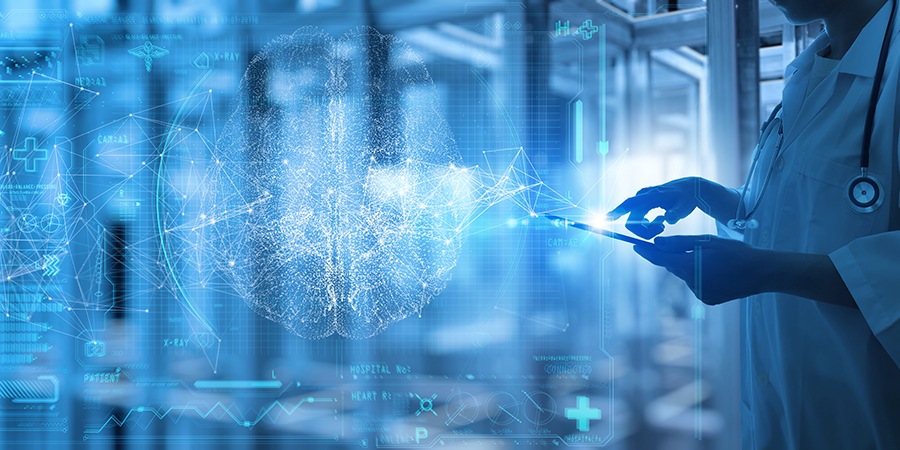“Digital health” is a concept that combines technology and healthcare. It includes varieties of technology that are implemented in the health field, such as software, applications, hardware, services and more.
Digital technologies are being passed down in order to provide access to a broad healthcare field, to ımprove healthcare quality and outcomes and to enlarge the population’s well-being.
Digital health consists of different categories such as mobile health (mHealth), health information technology (IT), wearable devices, telehealth, telemedicine and personalized medicine.
It is becoming increasingly essential because technology is being adopted everywhere, and it is impacting the healthcare field more and more and being recognized as an important facilitator in everyday life.
In addition, digital tools are being more widely acknowledged because some people or even clinicians are prone to use them for a more holistic vision of patient health and because they offer all patients the ability to have greater control over their own health. and
The quick advancement of an array of modern innovations is having a big effect on healthcare areas. One of those advances is Mobile Health (mHealth) frameworks. There are different definitions of mHealth. For instance, mHealth has been characterized as “mobile computing, medical sensor and communication innovations for healthcare.”
As a matter of choice, mHealth may imply the usage of mobile devices to monitor or detect biological changes in the human body, while device management entities, such as hospitals, clinics or service providers, are collecting data and applying this data for healthcare and health status evolution.
Health Information Technology
The term “health information technology” (Health IT) refers to the electronic systems used by health professionals (and a growing number of patients) in order to store, share and analyze health information.
Medical Wearable Devices
Medical wearables include sensors, actuators, software and electronic patches to monitor patient health, detect abnormalities and even treat health problems. Some examples consist of everything related to wearable vital sign monitors, smartwatch glucometers and wearable pain relief devices.
Telehealth
Telehealth is the process of using a smartphone, tablet, laptop or similar connected device to obtain a medical service that is remotely based. There is a significant importance of telehealth service for people who are abroad and need the advice of their own doctor as well as for those patients who have caught an infectious disease as it will reduce the contamination to people around them. It might also facilitate consultations for people who lack mobility and may need to be driven to a clinic.
Benefits of Digital Health
- It facilitates access to healthcare services and enables more direct communication with healthcare professionals.
- It helps in the storage of and the ability to have full access to information by sharing and sending reports to patients and other professionals.
- It allows doctors to follow their patients more closely and make clinical decisions instantly.
- It improves diagnoses through machine learning algorithms.
Digital Health During the Pandemic
Digital health tools were being used in four main areas to respond to COVID-19: communication and information; monitoring and surveillance: supporting the provision of medical services; and vaccination.
The concept also includes the analysis of relevant health data and its application to big data-based systems such as epidemiological studies and AI-powered diagnostic support.
Digital technology is becoming increasingly important in the fight against the ongoing pandemic. They are used, among other things, for online medical consultations from home and to increase the efficiency of patient diagnosis and treatment through telemedicine, which has been a new experience for many, as well as telework and online education.
Similarly, health care workers are using digital technology to diagnose viruses. For example, China has developed a new e-health app that allows a patient to remotely assess COVID-19 symptoms.
Digitization
The development of digitization in the healthcare field has changed the interaction between patients and doctors.
This has led to two-way media communication, such as the telephone, and has produced media communication such as healthcare campaigns, advertising and more.
These areas of the media environment are currently expanding to include podcasts, emails, online consultations, etc. Such digitization is also evident in the utilization of health tracking apps, gamification apps and more.
Many fields have emerged, like artificial intelligence that includes chatbots and applications that operate without any necessary human intervention.
Importance of ICT
ICT is defined as a technology with high transformative potential because it introduces new ways of delivering medicine, develops healthcare, and offers opportunities to implement entirely new healthcare models. Such technologies are essential for updating primary health care, as they contribute to personalized care for chronic diseases and improve access to health care for rural residents. They also help streamline data collection and monitoring.










